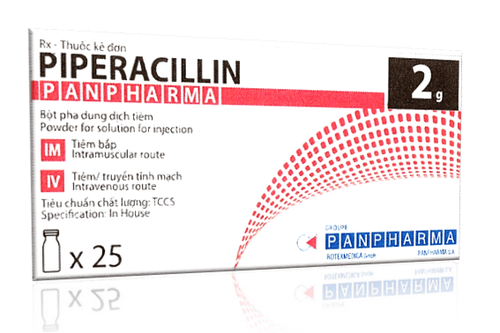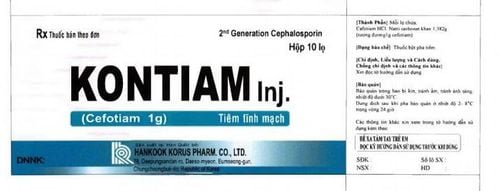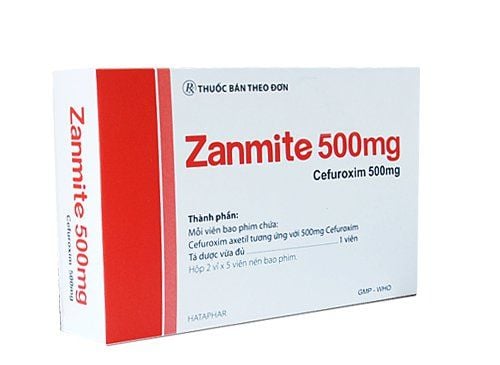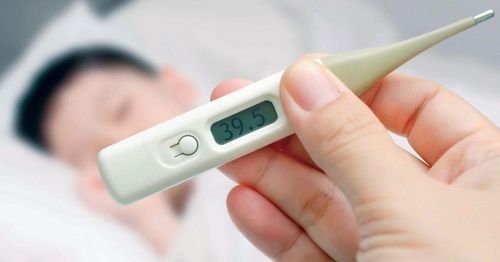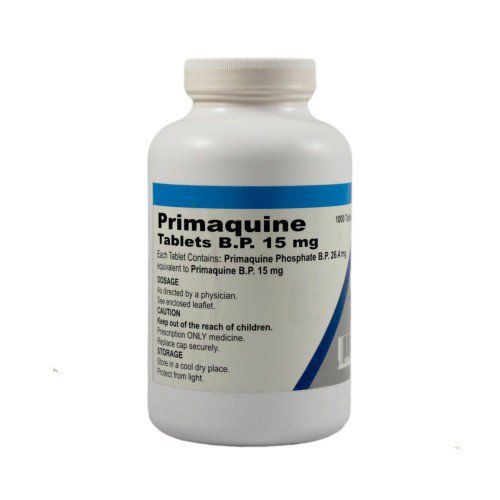This is an automatically translated article.
According to the guidelines for diagnosis and treatment of the disease of the Ministry of Health, the state of recurrence in malaria needs to be identified in a specific and correct way in order to have appropriate interventions. In addition, it is necessary to distinguish recurrent malaria from other diseases so that patients can rest assured that they will complete the regimen prescribed by the doctor.1. Causes of malaria recurrence
In malaria endemic areas, there are cases of patients with recurrent malaria, fever episodes occur consecutively, leading to the perception that malaria is a chronic, chronic and incurable disease. cured. In fact, malaria is a limited disease, people with good resistance even if it is not treated, the disease can also go away on its own when the parasite has reached the end of its parasitic life in the human body (provided that no treatment is needed). relapsed in malaria).Malaria recurs due to many different causes, which can be mentioned as:
The asexual form of the malaria parasite in red blood cells left over from the previous episode continues to grow, to the point of breaking the threshold and causing fever; Plasmodium falciparum and Plasmodium vivax parasites cause malaria to recur almost after 7-14 days (flare phenomenon); The type of Plasmodium falciparum sometimes appears after 3 - 6 months in people who have had 1 immunity; The dormant form of Plasmodium vivax and Plasmodium ovale species parasites in the liver will activate, grow and release into the blood, causing distant recurrence after a few weeks or 9 - 10 months; In some cases, Plasmodium malariae strains have a latent clonal cycle in erythrocytes, followed by reactivation causing relapse in malaria.
2. Characteristics of recurrent malaria

Sốt rét dễ tái phát ở bệnh nhân không đảm bảo nguyên tắc sử dụng thuốc điều trị
Infection with drug-resistant Plasmodium falciparum parasites, or anti-malarial drugs do not kill all the clones in red blood cells; Plasmodium vivax infection but the principle is not guaranteed to use antimalarial drugs that kill dormant in the liver, combined with antipyretic drugs; Have a history of previous infection with malaria parasites from 1 to 5 years, depending on how long the parasite stays in the body; Having a hard labor situation in the early stages of malaria infection in the first 6 months. 2.2. Symptoms Patients often have a cycle of fever from the onset and typical attacks with 3 stages:
Chilling phase Chills last from 15 minutes to 1-2 hours, starting along the spine and spreading out whole body, 2 teeth banging together, shivering, still cold covered with many blankets, pale lips, dark circles under eyes, goiter, small rapid pulse, enlarged spleen and frequent urination;
Fever phase After the cold is over, the fever reaches 40 - 41°C, lasts an average of 2 - 4 hours or more depending on the severity, The patient is hot, throws blankets, face and eyes are red , hot and dry skin, headache, dizziness, vomiting, rapid pulse, rapid breathing, slight pain in the liver and spleen, little and dark urine.
Stage of sweating The temperature drops, sweating from the forehead, head, face to the whole body. At this point, the patient is completely comfortable, only thirsty and sometimes falls asleep.
3. Distinguishing recurrent malaria from other diseases
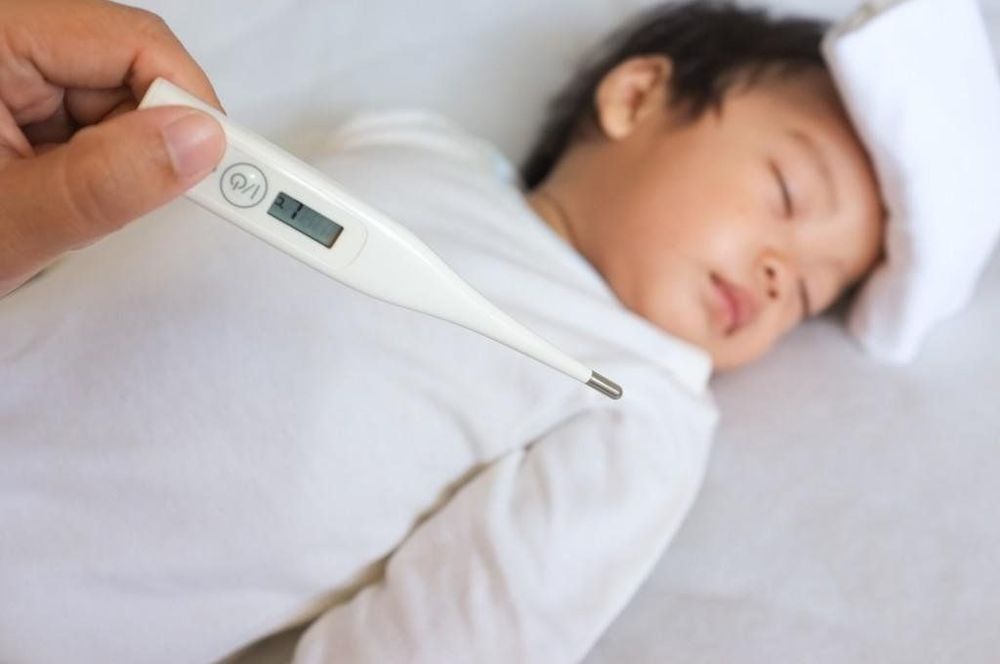
Nhiễm trùng huyết là bệnh dễ bị nhầm với sốt rét bởi triệu chứng khá giống nhau
From new malaria-free areas to endemic areas, not yet immune to malaria; Children aged 4 months to 2 - 4 years old in malaria endemic areas. 3.2. Malaria Reinfection Reinfection is common in sick people:
For a long time only mild fevers, but now high fever occurs continuously for many days similar to primary malaria. The parasite density is often high, the gametophyte of the parasite is not detected at the outset and at the same time as the trophozoite (different from relapse in malaria); Roaming and living in an area where malaria is highly endemic. The clinical course of the disease is often serious. If there is a case of malaria parasite infection different from the previous infection, the diagnosis is relatively easy; Having had malaria before but having been treated completely, recovered from the disease, for many years, there was no recurrence of malaria. If reinfected with malaria, the clinical picture will be similar to that of the first infection (although the infected malaria parasite is the same as the previous strain). 3.3. Other diseases Common bacterial infections that are easily misdiagnosed with recurrent malaria include:
Sepsis: Severe intoxication causing many chills during the day, white blood cell count and neutrophilic count increased high, high erythrocyte sedimentation rate, detect pathogenic bacteria in blood culture; Urinary tract infection: Continuous fever, which may be intermittent but not periodic, accompanied by symptoms of urinary disorders, pain in the urinary organs; there are red blood cells, white blood cells, granulosa casts in the urine; urinary tract stones may be seen; Biliary tract inflammation : Pain in the biliary tract, gallbladder or liver, accompanied by constant fever and many chills during the day. Patients with severe poisoning often have yellowing of the skin and eyes; peripheral blood leukocytes and high erythrocyte sedimentation rate; Gallbladder and biliary wall may be thickened or gallstones may be present; Liver abscess: Liver pain, liver swelling much, signs of liver fibrillation and Ludlow are positive, easy to detect negative dilution through imaging.
4. How to handle recurrent malaria

Bệnh nhân cần điều trị sớm, đúng và uống thuốc đủ liều
Early, correct treatment and adequate doses of medicine; Antipyretic treatment combined with anti-contagious treatment if the patient is infected with the parasite P. falciparum; Radical treatment if infected with the parasite P. vivax; Malaria cases caused by P. falciparum infection should not be used with a single anti-malarial drug, it is necessary to use a combination drug to limit the parasite's resistance to drugs, as well as increase the effectiveness of treatment; It is recommended to combine specific anti-malarial drugs together with supporting and improving the patient's condition. Once a patient has been diagnosed, a first-line antimalarial drug should be used, depending on the causative agent. If infected with malaria:
Plasmodium falciparum: Need to treat with artemisinin derivatives such as dihydro-artemisinin combined with piperaquin, brand name arterakine and CV artecan for 3 days and a single dose of Primaquine on day 4; Plasmodium vivax: Chloroquine for 3 days kills the asexual form of the parasite in red blood cells. The drug only works to treat fever, so it must be combined with Primaquine for 14 days (starting together at the beginning when using Chloroquine) to kill the hypnozoite of the parasites in the liver to be able to kill the parasite. root, is a medicine to prevent recurrence of malaria; Plasmodium malariae: Chloroquine is a 3-day antimalarial drug. Physicians must monitor patients clinically and parasitologically throughout the course of treatment to promptly detect and manage recurrent malaria cases. If the patient has re-infection with malaria but the parasite reappears:
Within 14 days: Treat with an alternative medicine (second line) Quinine for 7 days combined with Doxycycline for 7 days. For pregnant women and children <8 years old, use Quinine for 7 days in combination with Clindamycine for 7 days; After 14 days: Treat with first-line drugs such as recurrent malaria. If there are many cases of treatment failure for 1 drug at the same medical facility, the medical team should promptly report it to the upper level for verification of drug-resistant malaria parasites.
Within the first 3 days of treatment and there are still malaria parasites, if the patient shows the following dangerous signs, urgent treatment such as severe malaria is required. Specifically:
Transient mild disturbance of consciousness, lethargy, delirium, struggling...; Continuous high fever, digestive disorders, vomiting several times a day, diarrhea, dehydration, acute abdominal pain; Severe headache, severe anemia, blue skin, pale mucous membranes... To overcome the recurrence of malaria, it is necessary to adhere to the correct treatment principles in combination with avoiding being bitten by Anopheles mosquito carrying the disease. and disease transmission. The best way to prevent disease is to sleep under a mosquito net regularly, especially when going to malaria-endemic areas, in malaria-endemic areas or when going to the forest, fields...
Vinmec International General Hospital is one of the The hospital not only ensures professional quality with a team of leading medical professionals, a system of modern equipment and technology, but also stands out with comprehensive and professional medical examination, consultation and treatment services; civilized, polite, safe and sterile medical examination and treatment space.
Customers can directly go to Vinmec Health system nationwide to visit or contact the hotline here for support.
Articles refer to the source: impe-qn.org.vn
MORE:
How to reduce malaria in adults Identify signs of severe malaria Tests for malaria parasites




